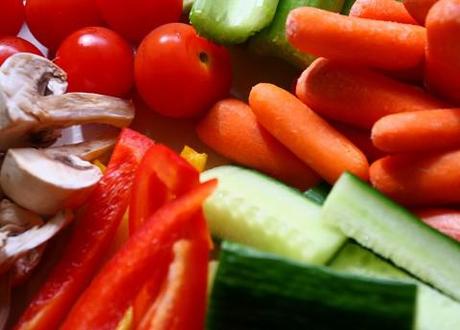 Organic food: not as innocent as it looks. Photo Credit: Flickr
Organic food: not as innocent as it looks. Photo Credit: Flickr
The background
Organic food is to found in the finest kitchens and best shopping baskets in the land but a new study by Stanford University in California has found that there is no conclusive evidence that organic food has any more health benefits than conventional food.
The study looked specifically at vitamins A, C and E and found no significant differences in the vitamin content of organic and conventional fruits and vegetables. Pesticide residue was found in 7 percent of organic produce and the findings proved that both organic and conventional foods were at similar risk of bacterial contamination. This is all despite the fact that, as Gawker reports; “the Nielsen survey from 2010 found that 76 percent of people who buy it said they do so because it’s healthier. And 51 percent of people said they believed organic produce was more nutritious.”
The organic backlash
Dr Crystal Smith-Spangler, the lead author of the latest review, told BBC News: “There isn’t much difference between organic and conventional foods, if you’re an adult and making a decision based solely on your health.” The BBC also noted that the Stanford findings supported an earlier review by the UK’s Food Standards Agency. Prof Alan Dangour, of the London School of Hygiene and Tropical Medicine, who carried out that work, said: “Hopefully this evidence will be useful to consumers.”
These findings may prove a financial blow to an already suffering market for organic produce. The Telegraph reported that the organic industry in Britain last year witnessed a sales drop of 4 percent in organic products to £1.67 billion, the third consecutive year that sales have dropped. However, this won’t bother The Telegraph’s Harry Wallop much: “I was brought up in an era of Findus Crispy Pancakes and Angel Delight, and it did me no harm. I look at my nine-month-old child, with his face smeared in organic butternut squash and prunes, and suspect that I have been sucked into a great middle-class con trick.”
Don’t read too much into the findings
Not everyone is giving full credence to the new research. The Soil Association told BBC News, they believe the report is deeply flawed: “Studies that treat crop trials as if they were clinical trials of medicines, like this one, exaggerate the variation between studies, and drown out the real differences. A UK review paper, using the correct statistical analysis, has found that most of the differences in nutrient levels between organic and non-organic fruit and vegetables seen in this US study are actually highly significant.” Even the author of the review, Dr Smith-Spangler, told The Guardian that “this study is not able to give consumers hard information about the impact of pesticide contamination on health because there are so few human studies available.”
Don’t discount the benefits of organic
Slate observed that “the findings neglected to mention that conventional food tends to carry higher traces of pesticide and, in the case of beef, pork, and chicken, higher levels of antibiotic-resistant bacteria.” The New York Times also referred to a 2010 study by Washington State University scientists that found organic strawberries have more vitamin C and antioxidants than conventional strawberries, and to a study by scientists at the University of Barcelona that found organic tomatoes also have more of a type of antioxidant called polyphenols than commercially grown tomatoes. Jezebel noted that, of course, organic foods have the added ability to “imbue their consumers with an immensely satisfying sense of self-righteousness” before also citing findings of the Stanford study that “organic milk might contain a touch more omega-3, but omega-3 is really the least exciting of all the omegas so nobody seemed too impressed.”

